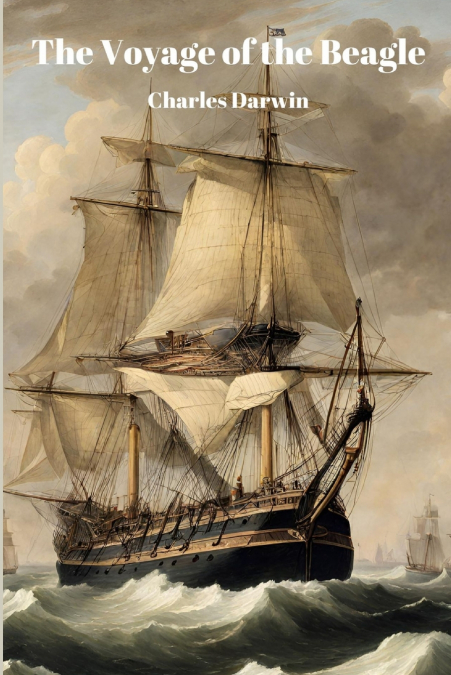
Charles Darwin
The Voyage of the Beagle, a maritime odyssey that unfolded in the early 19th century, stands as an extraordinary chapter in the annals of exploration, forever etching the HMS Beagle into the fabric of scientific history. Led by the intrepid Captain Robert FitzRoy, this maritime journey embarked in 1831, unfurling its sails to the winds of curiosity and discovery.Picture, if you will, the majestic vessel-a sleek, three-masted brigantine adorned with the Union Jack, cutting through the azure waves of the Atlantic Ocean. The Beagle was no ordinary ship; it was a floating laboratory, a crucible for scientific inquiry, with a young naturalist named Charles Darwin aboard. The ship’s mission was ostensibly to chart the coast of South America, but its impact would transcend mere cartography.As the Beagle navigated the waters, it charted an intricate course, weaving through the labyrinth of the Galápagos archipelago, tracing the contours of the South American coastline, and anchoring in far-flung ports from Tierra del Fuego to Tahiti. Each landfall held a promise of discovery, a trove of new species, geological wonders, and cultural nuances waiting to be unraveled.The Galápagos Islands, an otherworldly realm in the Pacific, became a crucible of inspiration for Darwin. Here, he encountered an array of unique creatures, from giant tortoises to marine iguanas, each perfectly adapted to their isolated environments. These encounters sowed the seeds of his groundbreaking theory of evolution, the genesis of ideas that would reshape the very fabric of our understanding of life’s tapestry.The Beagle’s sojourn was not confined to biology alone; it danced through the realms of geology, anthropology, and meteorology. FitzRoy, a polymath in his own right, led surveys and experiments, collecting data that would enrich the scientific corpus for generations to come. The ship’s deck, once reserved for the hustle of sailors, became a stage for the ballet of scientific inquiry, where specimens were cataloged, notes were scrawled, and hypotheses were born.Yet, this voyage was not without its trials. Storms battered the Beagle, testing the mettle of both ship and crew. The uncharted waters presented challenges that demanded resilience and determination. Through the tempests and trials, the Beagle persevered, emerging as a floating bastion of knowledge.The odyssey of the Beagle, spanning nearly five years, left an indelible mark on the scientific landscape. Its legacy resonates not only in the meticulous charts it produced but in the paradigm-shifting ideas born from the inquisitive mind of Charles Darwin. The journey of the Beagle transcends its nautical roots; it is a testament to the unyielding human spirit that yearns to explore the unknown, to unravel the mysteries that shroud our understanding of the world.As we reflect on the voyage of the Beagle, we are invited to envision the vast expanse of the open sea, to feel the spray of salt on our faces, and to marvel at the wonders of a world waiting to be discovered. The Beagle, with its billowing sails and insatiable curiosity, becomes not just a ship but a symbol-an emblem of human exploration, scientific enlightenment, and the boundless potential that lies beyond the horizon.